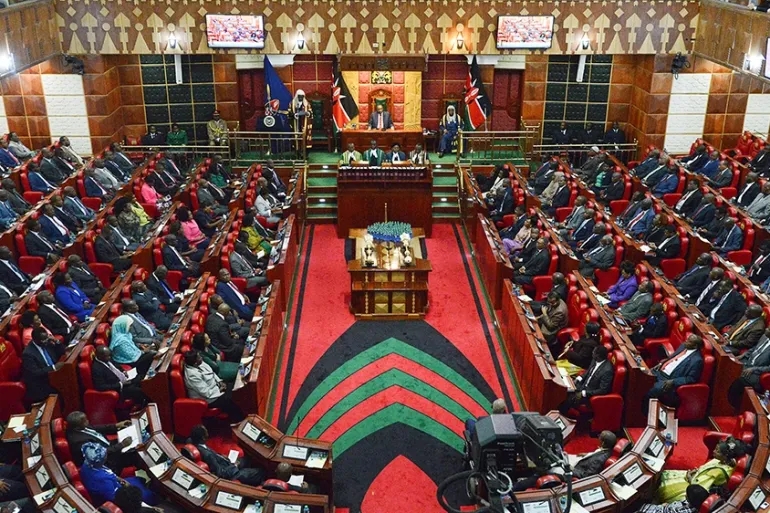The undeniable connection between climate change and food security carries extensive implications across diverse sectors, including agriculture, water resources, food distribution and community well-being.
The Africa Climate Summit held in Nairobi last week generated considerable anticipation and enthusiasm, serving as a pivotal platform for collaborative efforts within Africa to address climate justice and the glaring global food crisis.
However, despite elevated expectations, African civil society groups expressed disappointment with the summit's outcomes, underscoring a noticeable lack of substantive engagement from essential stakeholders within the realm of food systems, including smallholder farmers.
The global food crisis encompasses a complex array of challenges stemming from a convergence of factors, including surging prices of food, fertilisers and fuel, an uneven recovery post-Covid-19, an impending debt crisis, the exacerbation of climate change's impacts, and the Ukraine invasion.
These elements have exacerbated the troubling trajectory of rising hunger levels since 2014, with Africa experiencing a notably substantial impact. In 2022, a staggering 783 million individuals worldwide grappled with chronic hunger, while nearly a quarter of a billion people faced extreme food insecurity, marking the highest figures in recent decades. It is imperative that we no longer turn a blind eye to this elephant in the room.
The Africa Climate Summit bore witness to the introduction of the Nairobi Declaration, which encompasses commitments to address the food crisis. These commitments call for the African Union to redouble its efforts to enhance agricultural yields through sustainable farming practices, simultaneously fortifying food security and mitigating adverse environmental repercussions.
Additionally, there is an appeal for support for key actors within the food production systems, including smallholder farmers, indigenous communities and local populations, as they transition towards economically responsible and environmentally conscious models.
These commitments echo those articulated in the Maputo Declaration, adopted in July 2003 during the Second Ordinary Session of the African Union Assembly in Maputo, Mozambique.
The Maputo Declaration marked a significant milestone in addressing Africa's food security challenges, with primary objectives centred around resource mobilisation, the enhancement of agricultural productivity, and the promotion of sustainable development within the agricultural sector.
While the pursuit of food security in Africa has persisted since the Maputo Declaration, it remains essential to periodically assess the commitments made before embarking on new initiatives.
World leaders missed an opportunity to effectively address the food crisis and make commitments during the Africa Climate Summit and the June Paris Summit. They are now poised to convene at the UN General Assembly to address pressing issues, including climate change, escalating poverty, armed conflicts and food insecurity.
Recognising the problem represents the initial step towards formulating solutions. The global food crisis encompasses not just a climate crisis but also a conflict crisis and a cost-of-living crisis, necessitating a robust and coordinated global response currently lacking.
A multifaceted approach is imperative, extending beyond climate change mitigation. Coordinated efforts, spanning from local to international levels, are essential. These strategies encompass but are not limited to investments in sustainable agriculture, enhancements in food distribution and accessibility, advancements in research and innovation, empowerment of smallholder farmers, especially women and indigenous communities, and reducing food loss and waste.
Campaign officer, Hungry for Action-SDG2 Advocacy Hub Secretariat













